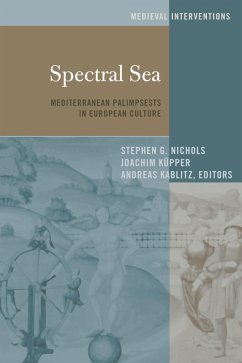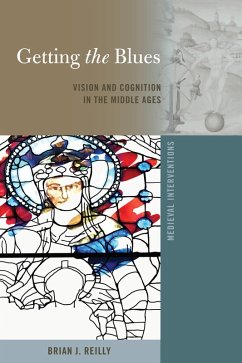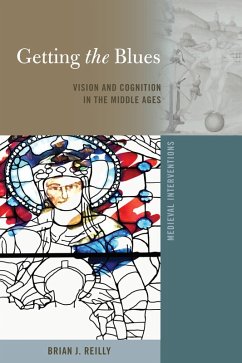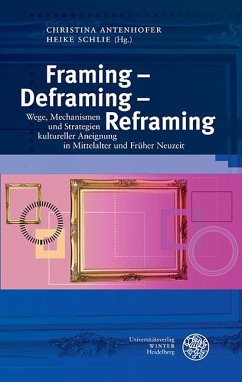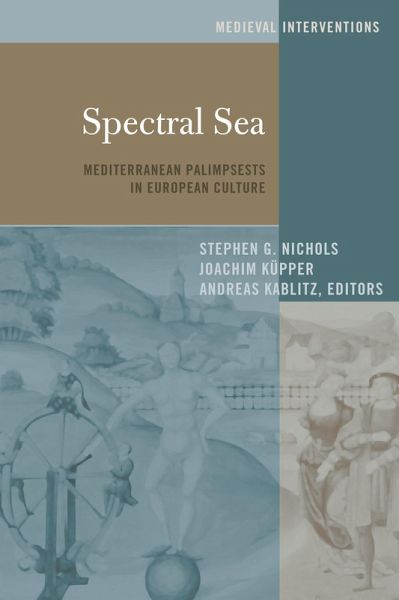
Spectral Sea (eBook, PDF)
Mediterranean Palimpsests in European Culture
Versandkostenfrei!
Sofort per Download lieferbar
Statt: 63,60 €**
50,95 €
inkl. MwSt.
**Preis der gedruckten Ausgabe (Broschiertes Buch)
Alle Infos zum eBook verschenkenWeitere Ausgaben:

PAYBACK Punkte
25 °P sammeln!
From the dawn of ancient civilization to modern times, the Mediterranean Sea looms in the imagination of the people living on its shores as a space of myth and adventure, of conquest and confrontation, of migration and settlement, of religious ferment and conflict. Since its waters linked the earliest empires and centers of civilization, the Mediterranean generated globalization and multiculturalism. It gave birth to the three great monotheisms-Judaism, Christianity, and Islam-religions of the book, of the land and of the sea. Over the centuries, the Mediterranean witnessed the rise and fall o...
From the dawn of ancient civilization to modern times, the Mediterranean Sea looms in the imagination of the people living on its shores as a space of myth and adventure, of conquest and confrontation, of migration and settlement, of religious ferment and conflict. Since its waters linked the earliest empires and centers of civilization, the Mediterranean generated globalization and multiculturalism. It gave birth to the three great monotheisms-Judaism, Christianity, and Islam-religions of the book, of the land and of the sea. Over the centuries, the Mediterranean witnessed the rise and fall of some of the oldest civilizations in the world. And as these cultures succeeded one another, century after century, each left a tantalizing imprint on later societies. Like the ancient artifacts constantly washed up from its depths, the lost cities and monuments abandoned in its deserts or sunk beneath its waves, Mediterranean topography and culture is a chaotic present spread over a palimpsest many layers deep.
No region grappled more continuously with, nor was more deeply marked by Mediterranean culture and history than Europe. Europe's religions, its languages, its learning, its laws, its sense of history, even its food and agriculture, all derived from Greek, Roman, and-in the Middle Ages-Muslim and Jewish cultures. The essays in this book lay bare the dynamics of cultural confrontation between Europe and the Mediterranean world from medieval to modern times. One momentous result of this engagement was the creation of vernacular languages and the diverse body of literature, history, and art arising from them. The achievements of the arts reveal-to borrow a geological metaphor-the grinding tectonic pates of Mediterranean cultures and languages butting up against pre-existing European strata.
No region grappled more continuously with, nor was more deeply marked by Mediterranean culture and history than Europe. Europe's religions, its languages, its learning, its laws, its sense of history, even its food and agriculture, all derived from Greek, Roman, and-in the Middle Ages-Muslim and Jewish cultures. The essays in this book lay bare the dynamics of cultural confrontation between Europe and the Mediterranean world from medieval to modern times. One momentous result of this engagement was the creation of vernacular languages and the diverse body of literature, history, and art arising from them. The achievements of the arts reveal-to borrow a geological metaphor-the grinding tectonic pates of Mediterranean cultures and languages butting up against pre-existing European strata.
Dieser Download kann aus rechtlichen Gründen nur mit Rechnungsadresse in A, D ausgeliefert werden.




